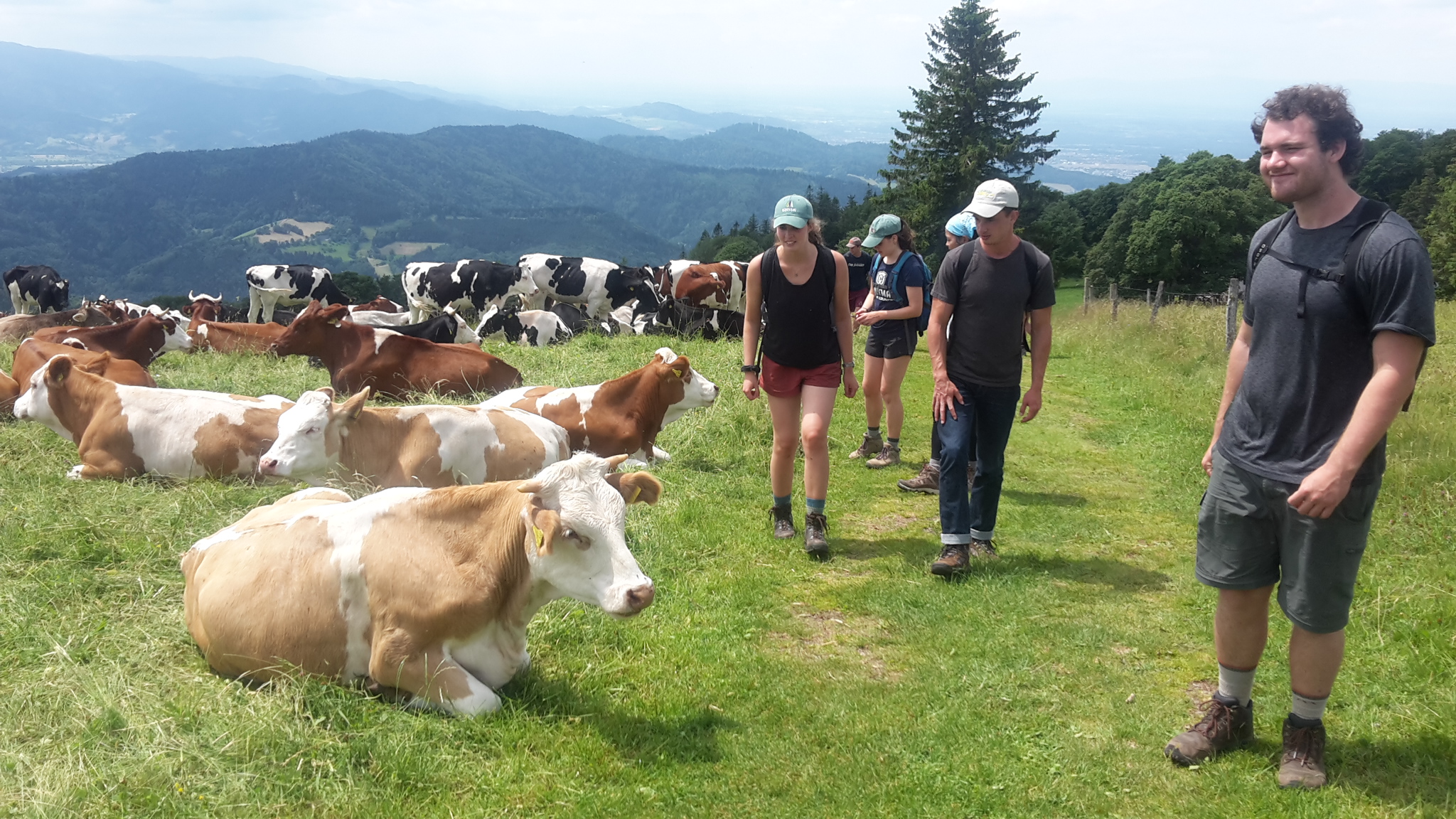What Career Opportunities will I have after Graduation?
As a graduate, you will have access to a wide range of meaningful career opportunities.
You can pursue professions in NGOs, foundations, national parks, museums, UNESCO World Heritage Sites, education, politics, municipalities, and more. You will engage with potential employers throughout your studies.
Whether in public institutions, associations, research, extracurricular learning centers, or companies, you will play an active role in shaping transformative processes, advancing sustainability, and addressing global challenges!
To effectively communicate sustainability topics, you must present them in a way that resonates with different target groups and emphasizes their relevance. You can excel at this in extracurricular learning locations and educational programs like geoparks, national parks, environmental centers, museums, or memorial sites that focus on sustainability (e.g., waldhaus-freiburg.de/stadtwaldgarten or klima-arena.de).
As a graduate, you’ll be equipped to develop, support, coordinate, promote, and evaluate educational processes using your didactic and scientific skills.
This professional field involves presenting the advantages and necessities of sustainable development to specific target groups, using the media to raise awareness, and developing ways to achieve sustainability goals. You will collaborate with experts, plan measures, and implement them. Fields of activity include associations, public institutions, NGOs, and networks (e.g., BUND, Deutsche Umwelthilfe, Fridays for Future, Federal Environment Agency, state ministries for the environment). The goal is to promote sustainability initiatives at various levels (local to international). Your specialized didactic and scientific expertise will help shape, support, and evaluate these processes.
In companies that promote sustainable development (e.g., construction and energy firms), or develop and implement concepts for ESD (e.g., consultancies, planning offices, exhibition companies, you will have the opportunity to create sustainability concepts and training programs for different target groups. You will collaborate with colleagues from various fields to coordinate and implement these programs, requiring strong knowledge in sustainability topics, expertise in the respective industry, and skills in project management and team collaboration.
Beyond formal education, sustainability is a significant field in adult education, further education, and training. With your expertise in sustainability and ESD didactics, you will be well-equipped to design, implement, and evaluate relevant programs at various educational providers.
In order to secure the need for academically qualified teaching staff at colleges and universities in the long term, the qualification of young academics is essential. This includes doctoral and postdoctoral opportunities as well as research activities in educational research, transformative processes and sustainability fields such as mobility, diversity and land use.
Researchers in this professional field must be able to formulate research questions, design, conduct and analyse studies and critically evaluate the results. In addition to sound educational and scientific competences, research skills as well as inter- and transdisciplinary approaches are of central importance.
The degree programme offers excellent research and development opportunities thanks to its links with renowned institutions such as the Research Center for Climate Change Education and Education for Sustainable Development (RECCE) and the International Consortium for Climate Change Education and Education for Sustainable Development (ICCE). This creates a solid basis for active participation in scientific discourse and implementation.

